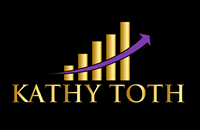Closing costs can sneak up on an unsuspecting home buyer in a hurry. In order to avoid any unexpected obstacles, prepare for the total purchase cost from the beginning through understanding what closing costs are and what they include.

About Closing Costs
Closing costs are typically associated with fees due on, or before, the date a buyer closes on a new home. Real estate agents and brokers, the mortgage lender, insurance companies, and state and local governmental agencies are the most likely sources of these fees. Some items that tend to get lumped in with closing costs are actually paid prior to closing or separate from the closing itself. Examples include title search fees, title insurance, taxes, property insurance and association fees.
Upfront costs can vary widely from market to market. There can be as many as a couple dozen items that need to be handled by a home buyer before signing on the dotted line at closing. They range from the loan origination fee, typically 1 percent of the purchase price, to costs for required inspections, an appraisal, and for recording fees. The title search and title insurance fees protect the lender from secondary and silent liens on the property. In some cases, an escrow deposit to cover the cost of private mortgage insurance and the first few months of property taxes will be required.
Estimated Price of Closing Costs
As a rule, home buyers will pay anywhere from two percent to five percent of the total purchase price in upfront costs. A recent nationwide survey of closing costs showed that Michigan’s were among the lowest in the U. S. The survey used a $200,000 home value as the benchmark. In Michigan, these costs amounted to an average of $2,203, of which $1591 went to the lender, and $611 went to third parties. A buyer seeking to “buy down” the interest rate upfront will add one percentage point of the total purchase price for each discount point purchased. Prepaid fees were also excluded from the survey.
Minimizing Their Impact
It’s not possible to avoid upfront costs entirely, but there are ways to minimize them. If the lender allows for it, a no-closing-cost mortgage is one possibility. The lender will typically charge a higher interest rate or include these costs in the mortgage, but for a cash squeezed buyer already struggling to come up with the down payment, it can be a good option. Finally, closing costs in a traditional transaction are born by the home buyer. But, as always, many aspects of a real estate purchase can be negotiated. Closing costs are no exception. A seller who agrees to pay for closing costs, however, may be less willing to negotiate in other areas.
Do your homework early to avoid last minute surprises. Then, sit down with your Ann Arbor area real estate agent with the confidence you are ready to write the purchase offer that best suits your needs.
